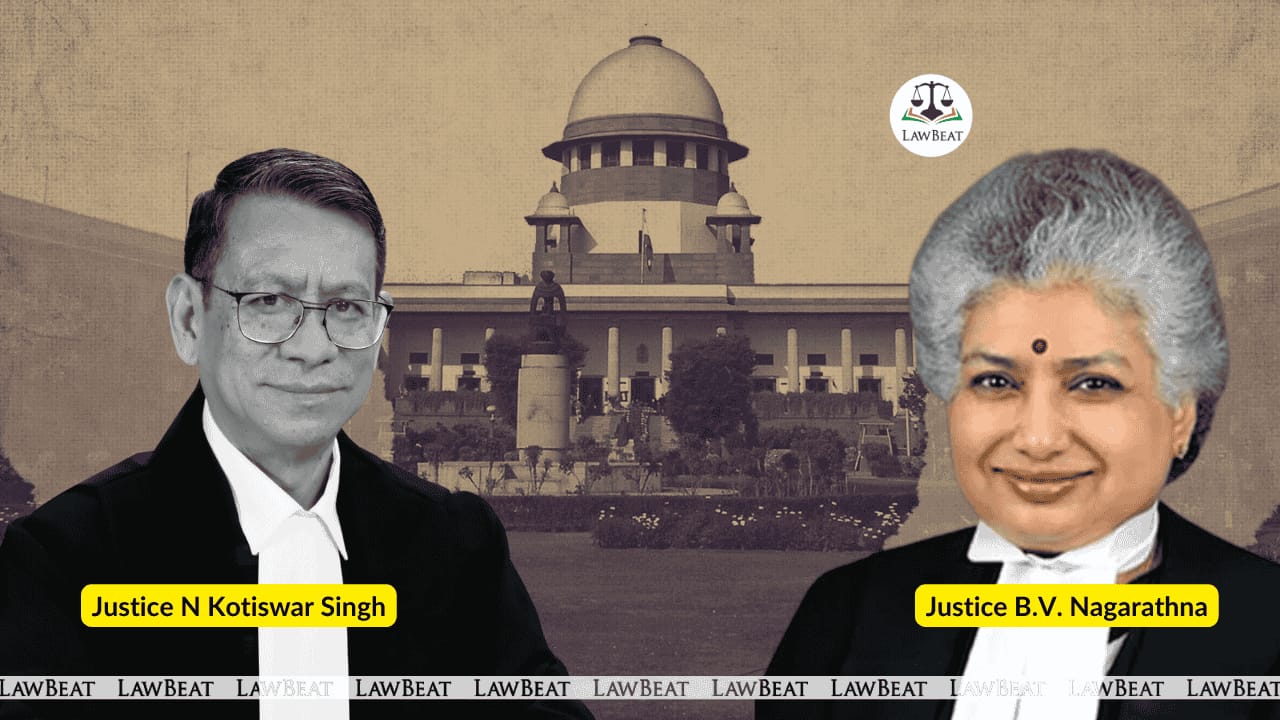'Complaint non est in absence of sanction u/s 197 CrPC', SC quashes proceedings against senior officer for building demolition

Supreme Court also noted demolition cannot be termed as "excess", since it was done under the orders of the superior authority and not independently as such
Supreme Court quashed criminal proceedings initiated against a senior Haryana government officer for demolishing the building of an engineering and management college in Gurgaon in 2007, for having been vitiated due to absence of sanction under Section 197 CrPC.
"We observe that since there was no prior order of sanction passed under Section 197 of the CrPC, the initiation of the complaint itself, is non est," a bench of Justices BV Nagarathna and N Kotiswar Singh said, allowing a plea by Gurmeet Kaur, then acting as District Town Planner, against the Punjab and Haryana High Court's order of September 18, 2017.
High Court had dismissed her petition for quashing the proceedings initiated on a 2010-2011 private complaint, as not maintainable. The appellant has contended no offence was made out on merits and there was no sanction under Section 197 CrPC.
It had said it could not categorically be opined whether there was an illegal act as such by the public servant which required sanction; that it required a detailed inquiry inasmuch as the Trial Court had held that there was a prima facie evidence against the appellant herein.
Before the apex court, the appellant contended during the course of the discharge of her official duties, she had carried out the demolition on the basis of the instructions of her superior officers and therefore, there was no malicious act, malice or any illegal act which could have been attributed to her, let alone any criminal act which could have been alleged against her.
Top court here examined the question whether it was necessary for the first respondent herein to have made an application seeking sanction under Section 197 of the CrPC and thereafter proceeded to file the complaint under Section 200 of the CrPC.
"A reading of Section 197 of the CrPC would indicate that there is a bar for a Court to take cognizance of such offences which are mentioned in the said provision except with the previous sanction of the appropriate government when the allegations are made against, inter alia, a public servant. There is no doubt that in the instant case the appellant herein was a public servant but the question is, whether, while discharging her duty as a public servant on the relevant date, there was any excess in discharge of the duty," the bench said.
It further pointed out Section 197 of the CrPC would not apply to a case if a public servant is accused of any offence which is de hors or not connected to the discharge of his or her official duty.
"We find that the facts of the present case would clearly indicate that the appellant herein who is accused of carrying out the demolition was doing so within the scope and ambit of her authority. We find that this is not a case where the appellant herein carried out the demolition dehors any legal backing or basis; neither was the said act of carrying out of the demolition outside the scope of her authority as the District Town Planner in the Enforcement Division," the bench said.
Supreme Court noted the appellant was carrying out the orders of the superior officers. "There is a correlation between the act of demolition and the discharge of official duty. The demolition was carried out during the course of performance of appellant’s official duties," the bench said.
The fact that an application was filed seeking regularisation of the construction put up by the first respondent would indicate that even according to the first respondent, there was a digression and other irregularities in the construction put up which required regularisation, the bench pointed out. The court also rejected the contention that when such an application was pending, the appellant had no authority to demolish the construction, saying demolition cannot be termed as "excess", since it was done under the orders of the superior authority and not independently as such.
"We observe that the first respondent herein ought to have sought sanction for prosecution under Section 197 of the CrPC in the instant case. The same, not having been done vitiated the initiation of the criminal proceeding against the appellant herein," the bench said.
